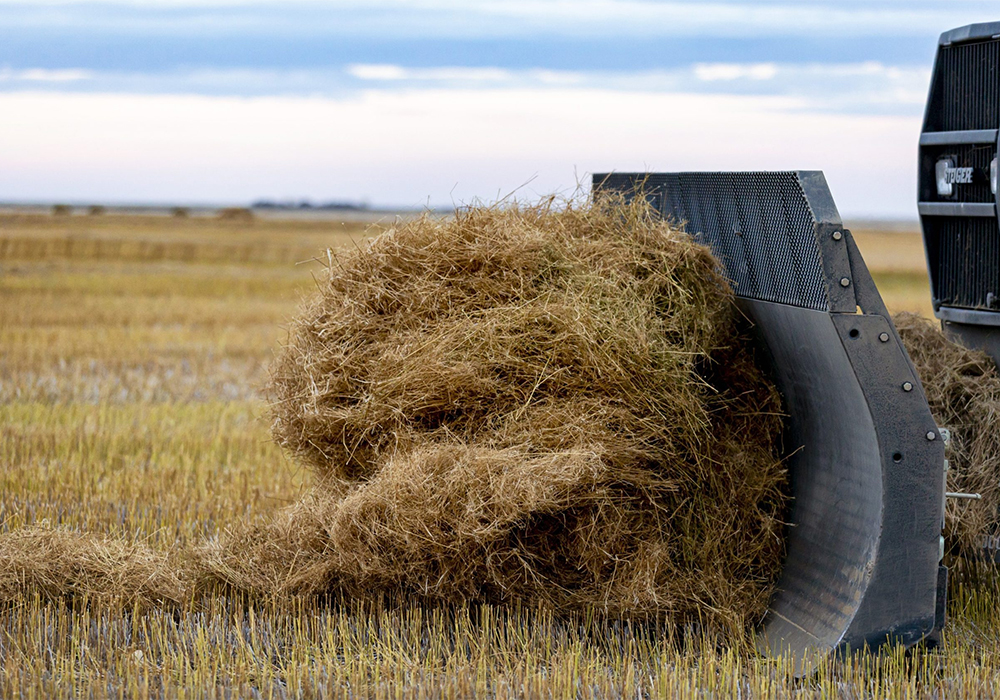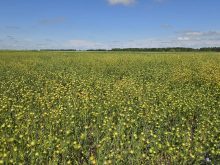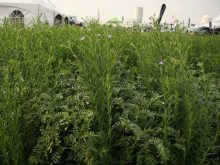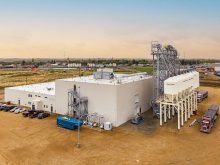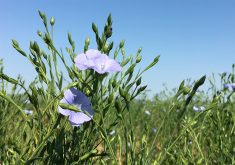Regina based Prairie Clean Energy is bringing its flax pellet facility home.
After one year of using Hemp Sense’s pellet mill facility in Gilbert Plains, Man., PCE is preparing for a more local launch.
It announced a crowdfunding campaign with a goal of $1.5 million on June 11 to buy the equipment needed to process flax straw into pellets in Regina. Mark Cooper, chief executive officer, said a Regina location has been the goal since company formation in 2020.
Read Also
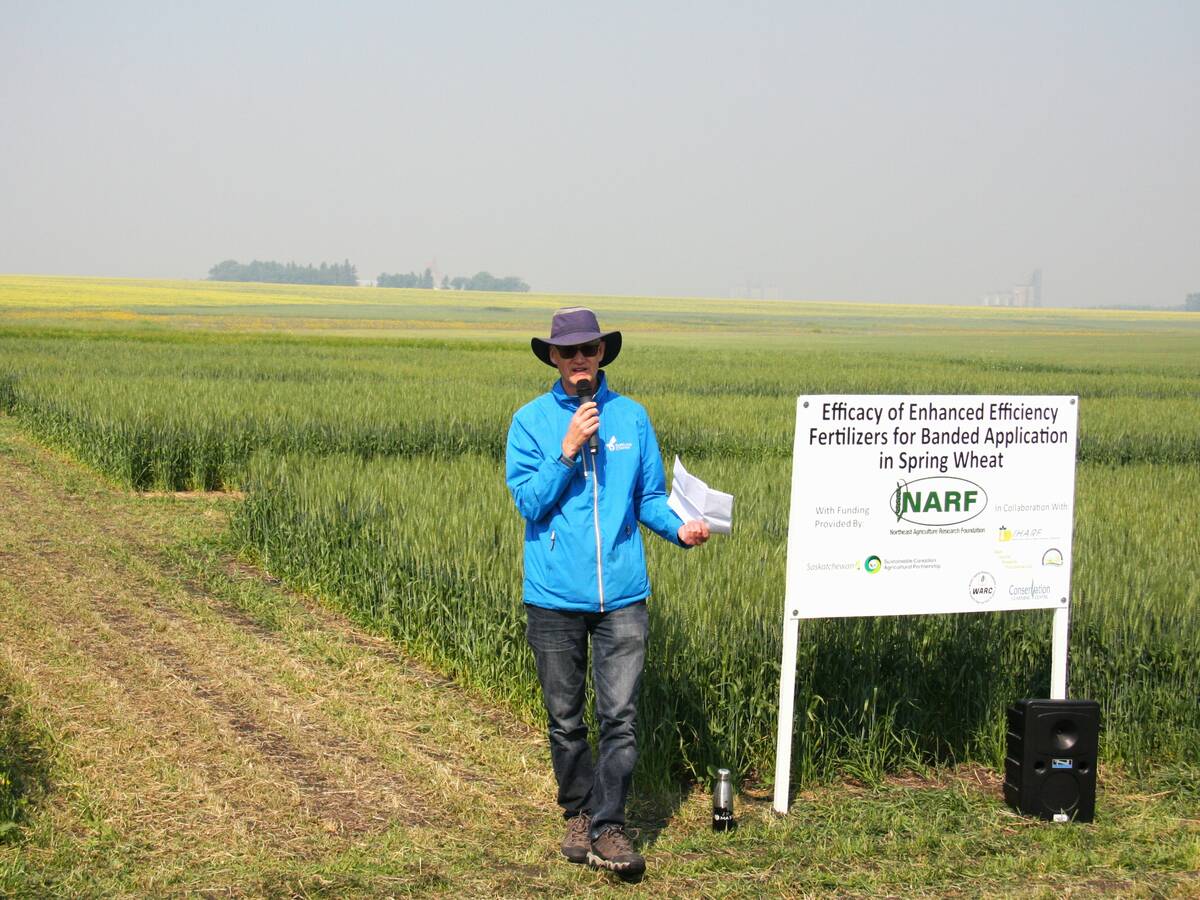
Fertilizer method’s link to emissions studied
A researcher says others studying greenhouse gas emissions aren’t considering how the loss of nitrogen into the atmosphere correlates with fertilizer application or if there is an impact to yield.
“We’re headquartered here,” he said. “And because the vast majority of Canadian flax is growing in a pretty close radius to Regina, it makes sense for us to be located here.”
He said the business hopes to open later this year to process the straw from this year’s harvest and also hopes to have the funds to order equipment at the end of July so processing could begin in October.
PCE offers a unique investment opportunity with a tax incentive for large investors of Saskatchewan residency. It’s campaign has so far raised just over $865,000.
The company is using the Canadian private investing platform of FrontFundr, which allows people to invest and buy company shares. Each share is $5 with a minimum investment of $500. The investment can be done through FrontFundr or a person’s RRSP or TFSA.
Accredited investors in Saskatchewan are eligible for the 45 per cent Saskatchewan Technology Startup Incentive tax credit with a minimum $15,000 investment. PCE is the first clean tech company to be included.

Flax pellets offer environmentally friendly energy
More than one million tonnes of flax straw are burned each year on the Prairies. PCE plans to buy that straw and process it into pellets.
“We’re paying the farmer, we’re paying to have it baled, and then we’re paying to transport it,” said Cooper.
Phase one is size reduction using grinders and hammer mills. Phase two is pelleting, using pellet mills, coolers and baggers.
On top of sourcing something that otherwise has no value, flax straw is environmentally friendly to burn.
“Our in-depth third-party testing shows our flax straw pellets can lower greenhouse gas emissions up to 90 per cent for heat and power generation,” said Mahmood Ebadian, PCE chief product and supply chain development officer, in a press release.
Compared to wood, flax burns hotter and cleaner, and has a slightly higher ash content.
The choice of pellets was due to ease of transportation and understanding, said Cooper.
“In pellet form, transportation over a long distance is effective and cost effective because you can densify the material into small little bits. It survives the transportation, say across the oceans. And it’s the common form that’s used for biomass boilers globally. So, pellets are something they understand, even if they don’t understand flax.”

More flax energy facilities planned
The facility is expected to employ 30 people full time, once fully operational, with five in administration and 25 in production.
“We intend to eventually expand to seven facilities across the Prairies,” Cooper said. “I would anticipate, and our rough guess is, we’ll end up with one in Manitoba, two or three in Saskatchewan, two or so in North Dakota, and one in Minnesota.”
Connections were made in the Manitoba flax market last year and there is interest elsewhere, he added.
“We’ve had good contact in North Dakota with some farmers, the government and the ag commissioner’s office there. We’re starting to get ready to do a push into North Dakota, which will probably start this fall.”
PCE and PanAm Carbon declare supply agreement
Prairie Clean Energy is partnering with PanAm Carbon to supply flax pellets to a Wolseley, Sask., pyrolysis project that converts hard-to-recycle waste into biochar, bio-oil, activated charcoal, and bio-water through application of heat.
In this case, the heat will be provided by burning flax pellets.
The pyrolysis facility will use local agricultural waste, said Wolseley mayor Gerald Hill in a June 13 press release, and that will benefit farmers in the area.
The agreement states that PCE will supply PanAm with 350 tonnes of flax pellets per month as the key raw material for PanAm’s facility.
The pellets will allow PanAm to make the most of environmental and economic returns, said sales and marketing officer Carlo Plava, in the release. Wolseley is 105 kilometres from Regina, site of PCE’s new plant.
PCE has agreed to purchase all biochar produced at the Wolseley facility. Mark Cooper, chief executive officer, said the business doesn’t have a use for the product yet, but sees potential for use as a soil enhancer.
Paul Franch, chair of PanAm Carbon, said in the release that production should begin this fall.




